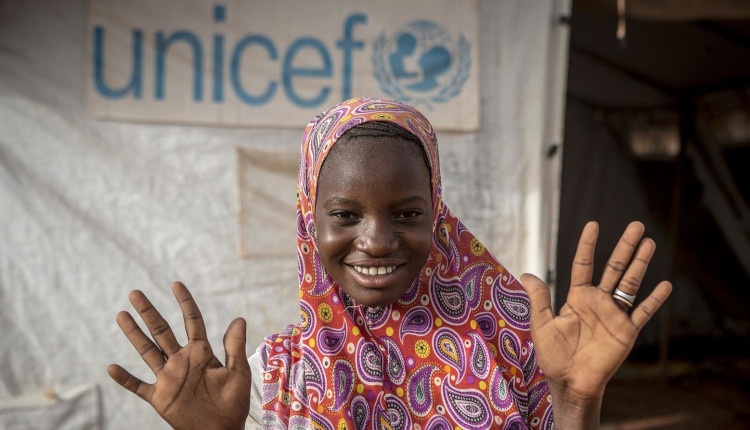
Children got power! The fight of Mali against COVID-19 in the camps
COVID-19 is threatening the entire African country but many still do not believe the pandemic exists. This is the story of Hawa and her efforts to make people aware of what is happening and how to prevent the contagion in the immigration camps of Mali.
Hawa is 15 years old and even if she is still so young, she already understands the importance of healthcare prevention, especially in times of COVID-19. With other young guys of the Socoura displacement camp in Sévaré (Mali), she is helping UNICEF operators to distribute PPEs.
COVID-19 in Mali: her flee from her village and the scepticism in the camp
Hawa comes from the Mopti region in Mali, which suffered a surge in violent attacks. When 85 children were killed in a brutal attack in the neighbouring village of Ogossagou in 2019, Hawa and her family fled to safety arriving at the Socoura displacement camp in Sévaré.
When half of the COVID-19 cases in Mali have been confirmed in the capital Bamako, and the virus started to threat displacement sites like Socoura, she understood that she had to do something. In camps, people live in tents in close proximity to each other and often have limited access to quality social services and reliable information.
Even if UNICEF and the Ministry of Health of Mali began training community at internal displacement sites to combat misinformation, many still do not believe in the pandemic. They perhaps think about some plague sent by divinities or that someone on earth, in particular, could be responsible for their misfortune.
Oumar, Hawa and children mission against COVID-19 in Mali
Oumar, a neighbour of Hawa, is one of those community relays. He sighs as he recalls the denial and misinformation he has confronted about COVID-19 in Mali. At the moment, only four of them are coordinating with each other to convince the remaining community members to respect prevention norms.
Oumar said to UNICEF operators: “The training we received really helped us to provide factual information to the families here.”
While Oumar provides information campaigns throughout the camp, Hawa can rattle off a list of key prevention measures. She learned how social distancing can make a difference. She learned that we should sneeze or cough into the fold of our elbows, that we should wash our hands frequently with clean water and soap. Not shake hands and to wear a face mask are also essential.
The child-friendly space at Hawa’s camp provides children safe from violence, guarantee hygiene and a place to play, meet other children. Oumar has been paying regular visits to the child-friendly space to teach children how to prevent the spread of COVID-19 in this camp in Mali. Meanwhile, space itself has also had to adapt.
Ahmed Ould Sid’ahmed Ould Aida, head of UNICEF’s field office in Mopti states: “We have to continue to provide this type of critical support to these children, who are from the most vulnerable families in the region and have been exposed to the worst types of violence. We’re adapting to ensure the children can still benefit from critical services, all while minimizing their risk of exposure to the illness.”
Awareness is power and thanks to these young guys many people in the camp can consider themselves safe. COVID-19 found tough rivals, here.



